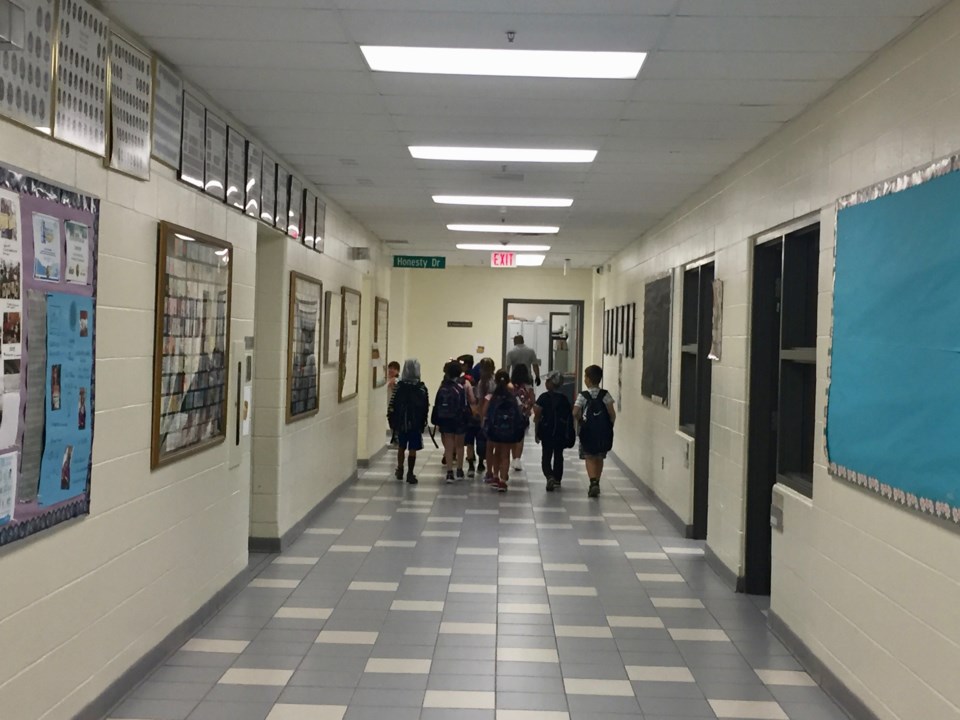Following a year of public meetings and input from some 2,000 parents, students, staff and community members, York Region District School Board trustees are moving forward after a series of troubling controversies with a new strategic plan.
“We’re not the same organization we were three years ago,” board chair Corrie McBain said. “The board is supposed to go through a review of the strategic plan every four years and it was time to do that.”
The board’s most recent community outreach and revamping of its multi-year strategic plan, set to be finalized Oct. 17, included input from parents, students, board staff and community partners.
Four key areas of focus were distilled from the $25,000 public consultation process: well-being and mental health, equity and inclusivity, collaborative relationships and ethical leadership.
In response to these pillars, the overwhelming sentiment found throughout the 10-page Town Hall Report is that a school community is only as strong as its weakest member. The report’s more than 50 ideas culled from participant feedback read like a blueprint on how to overhaul the local school system.
“The individuals wrote their own comments in that report, working in small groups,” McBain said. “The public can see that we heard what you said. We asked them questions around the four priorities and asked, ‘What would that look like to you on the ground?’”
The board is emerging from its troubled past with this new strategic direction, led by a new director of education, Louise Sirisko, since January 2018.
In April 2017, then-education minister Mitzie Hunter ordered a review of the York board after complaints hit the news headlines about Islamophobia and anti-black racism, as well as allegations of improper spending and international travel by trustees and senior staff.
In the ministry's 32-page report, investigators found there was “general agreement among senior staff that we interviewed that the senior administration team is a troubled team, and we heard the school board described as 'dysfunctional', 'a ship adrift at sea', 'on a downward spiral', and in need of external support and visionary, intelligent leadership.”
In response to the blistering review, the education minister issued a list of 22 directives for the board to complete, including training in governance, human rights and equity training, and to establish an integrity commissioner office. To date, there are only three directives outstanding, including a system-wide survey of students and parents expected to be completed in January 2019, entitled Every Student Counts Survey.
Community input indicated a need to rebuild trust in the current leadership through accountability and transparency. The report calls for an audit of the board’s hiring and promotion practices to ensure staff reflects the diversity of students and the school community in race, ethnicity, ability, religion and sexual orientation.
McBain confirms the board has already completed an audit on its human resources practices.
"Audits are your check and balance to see if you're doing what you're supposed to be doing," she said.
The creation of a safe and confidential snitch line of sorts was offered up as a way for parents to share their concerns and issues. This, too, has been noted, McBain said.
“When an allegation is made, you need to have all the details, and you can't have discussions if the individual is anonymous. We will be having some clear visuals in the schools to let people know if they have a concern, 'here’s what you do',” she said.
Participants also wanted to see improved parent-school communication, mandatory ongoing learning for frontline staff, a quiet space or room available to students for prayer or meditation, and the creation of an advisory panel that reflects the region’s increasingly diverse cultures, ethnicities, races, abilities, sexual orientations, gender identities, religions, languages spoken and nationalities. That, along with a review of the membership of school councils to ensure they are diverse and represent all identities in the community.
While the trustees' plan is more visionary in nature, the board's education director drives the action in the schools.
In her annual plan posted on the board's website, Sirisko highlights the organization's goals for the year ahead, which all aim to boost the academic performance and well-being of under-performing and under-served students.
“I’m happy to be wrapping up this term with a clear vision for how the strategic plan connects to what happens in the schools,” said McBain. “The new board is going to inherit a new plan (after the municipal election Oct. 22), tied directly to the director’s performance.”



